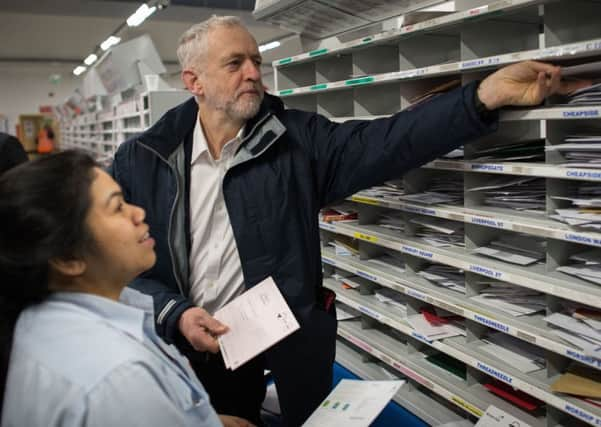Corbyn pledges publicly-run Post Office


He spoke to members of the Communication Workers Union in central London, pledging support for its campaign to preserve the universal service of deliveries to 29 million homes and businesses.
The union fears there will be an attack on Royal Mail workers’ terms and conditions under a review next year by the industry’s regulator.
Advertisement
Hide AdAdvertisement
Hide AdMr Corbyn told workers gathered in the car park of the huge Mount Pleasant site that he will organise an Opposition Day debate in the Commons next year to support the CWU campaign.
“I want to see a publicly-run Royal Mail, with protection for workers and the service,” he said. “Labour will be doing our very best to support and protect your conditions.”
Mr Corbyn called on Conservative MPs to support the campaign, warning that services to rural areas would be among those under threat by any changes such as increased competition, with other companies taking over the so-called “final mile” deliveries to houses.
The CWU designated today National Postal Workers Day as part of its People’s Post campaign.
Advertisement
Hide AdAdvertisement
Hide AdGeneral secretary Dave Ward said: “National Postal Workers Day - traditionally the busiest posting day of the year - is your chance to give posties across the UK the recognition they deserve.
“The CWU is campaigning hard to protect the terms and conditions of our members at the same time as preserving the service that we provide to the public and businesses.
“Royal Mail may have been sold off on the cheap, but the service is and always will be the people’s post.”
Mr Corbyn said the Mount Pleasant site was one of the most recognised buildings in the world, but “sadly” it was not publicly owned since Royal Mail was privatised.